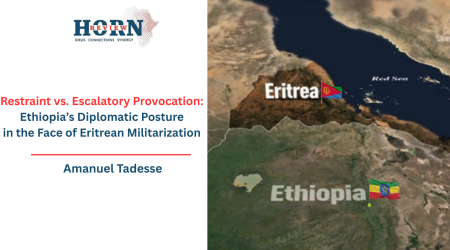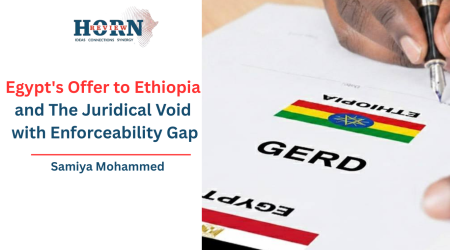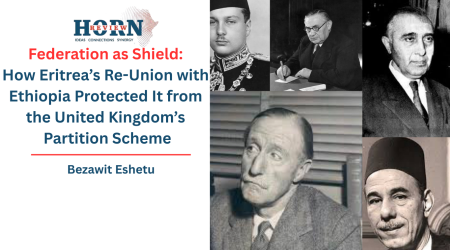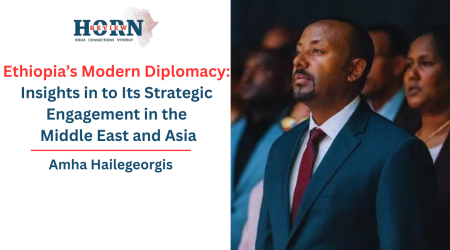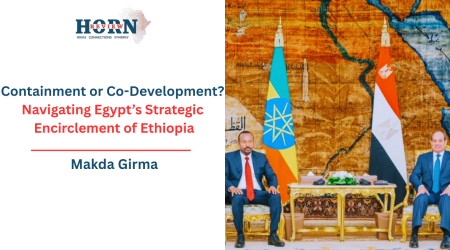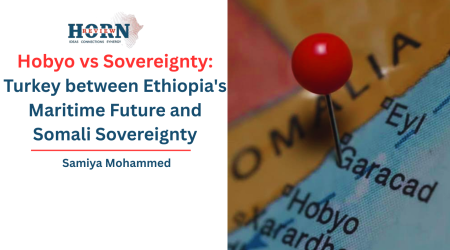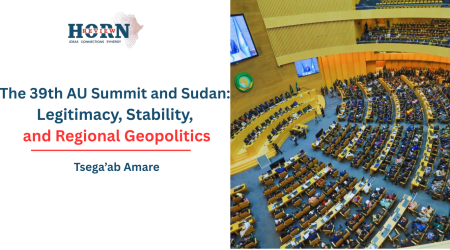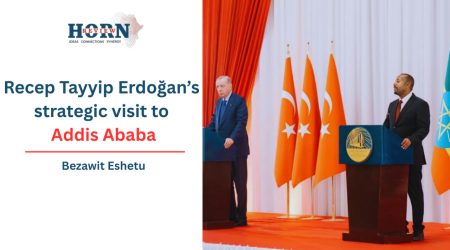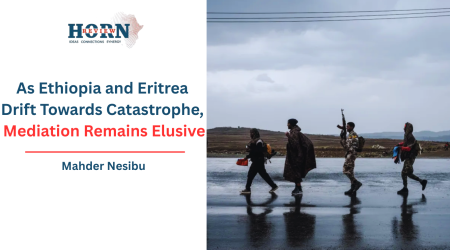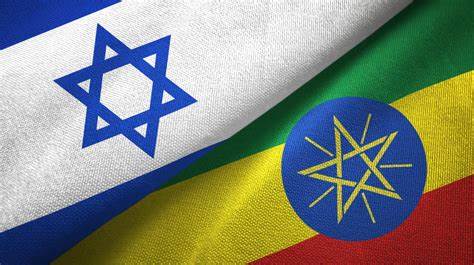
23
Mar
Reflections on Israel-Ethiopia Relations: A Historic and Strategic Bond
Israel and Ethiopia share a deep-rooted historical, social, and religious connection that spans millennia. This unique relationship is deeply intertwined with religious narratives, particularly those found in the ancient Ethiopian text known as the “Kebre Negest” (Glory of Kings). According to this sacred text, Ethiopian emperors and kings traced their lineage back to King Solomon of Israel, claiming descent through his union with the Queen of Sheba. The “Kebre Negest” also recounts the story of the Ark of the Covenant, believed to have been brought to Ethiopia by Menelik I, the son of Solomon and the Queen of Sheba, along with a group of followers who are often associated with the Beta Israel community, sometimes referred to as the Falashas.
Then, the establishment of the modern State of Israel in 1948 marked a turning point in the region’s history, as the newly formed nation sought international recognition and alliances a midst a hostile geopolitical environment. Surrounded by neighboring states that opposed the United Nations partition plan and the very existence of a Jewish state, Israel faced significant challenges in securing its place on the global stage. The 1948 Arab-Israeli War further underscored the urgency for Israel to cultivate diplomatic relationships and strengthen its network of allies. Ethiopia emerged as a nation of particular interest to Israel, not only due to its historical and religious ties but also because of its strategic significance in the region. Ethiopia’s complex relationship with Egypt, particularly over issues such as the Nile River and regional influence, presented an opportunity for Israel to forge a meaningful partnership.
At that time, Israel and Ethiopia have maintained a strong and strategic relationship in the military domain, marked by significant cooperation and mutual interests. During the 1960s, Israeli military advisers played a key role in training Ethiopian paratroopers and counterinsurgency units, enhancing the capabilities of the Ethiopian army. This period also saw frequent visits by senior Israeli military and security officials to Ethiopia, showing the importance both nations placed on their partnership. A central pillar of this collaboration was their shared objective of countering the political and military influence of Arab League countries, particularly their support for the Eritrean liberation movement and Somalia’s territorial claims over the Ogaden region.
The broader context of the Cold War and the bipolar global order further shaped the dynamics of Israel-Ethiopia relations. The rivalry between the United States and the Soviet Union in the Middle East and the Horn of Africa deeply influenced the region’s geopolitics. Ethiopia’s foreign policy shifted dramatically during this period, moving from a pro-Western stance under Emperor Haile Selassie to alignment with the Soviet Union under the Derg regime. Despite this shift, Israel continued to support Ethiopia’s military efforts, particularly in countering the influence of Arab forces in the region. This implicates Israel’s enduring strategic interest in maintaining stability and security in the Horn of Africa, as well as its commitment to preventing the emergence of hostile powers that could threaten its own security.
When we see people to people interaction, Ethiopia became a focal point for Israel following the proclamation of the Law of Return in 1952, a landmark Israeli law granting Jews, individuals with Jewish ancestry, and their spouses the right to relocate to Israel and obtain citizenship. This law held particular significance for Ethiopia due to the presence of the Beta Israel community, who were widely recognized as having Jewish roots. Over the decades, hundreds of thousands of Ethiopians were able to immigrate to Israel under this framework, although the process faced significant challenges, especially in its early stages, when many had to undertake perilous and often illegal journeys to reach Israel.
However, Israel’s relationship with African states has been complicated by its ongoing conflict with the Palestinians, which has shaped a largely negative perception of Israel across the continent. During the mid-20th century, the rise of socialist ideologies in Africa further exacerbated this sentiment, as many African leaders and movements accused Israel of being an imperialist and capitalist state aligned with authoritarian regimes, such as apartheid South Africa and Emperor Haile Selassie’s Ethiopia. This perception has persisted over time, influencing diplomatic relations and leading to recent developments such as the suspension of Israel’s observer status in the African Union in 2023, which had been granted just two years earlier in 2021.
Algeria, South Africa, and Zimbabwe have been vocal opponents of Israel’s readmission to the African Union, citing their strong support for the Palestinian cause as the primary reason for their stance. These nations argue that Israel’s policies toward Palestinians are incompatible with the values of the African Union, and they have consistently opposed Israel’s presence within the organization. Israel, in turn, has accused these countries of being influenced by Iran, which has long been a critic of Israel and a supporter of Palestinian groups. On the other hand, Israel enjoys significant support from several African nations, including Morocco, Rwanda, the Democratic Republic of Congo, Uganda, Ethiopia, Kenya, Eswatini, Malawi, and Zambia. These countries have backed Israel’s bid for observer status, reflecting Ethiopia’s continued alignment with Israel and its strategic interests in maintaining strong bilateral ties.
The strength of the relationship between Israel and Ethiopia was recently reaffirmed during a high-level meeting between Ethiopia’s Foreign Minister, Gedion Timotheos, and his Israeli counterpart, Gideon Saar. This visit, which marked a significant diplomatic engagement after many years, highlighted the commitment of both nations to deepen their cooperation. In their joint press release, the two foreign ministers emphasized the importance of strengthening bilateral relations, particularly in areas such as security, agriculture, and counter-terrorism. Israel praised Ethiopia’s firm stance against terrorism and expressed its willingness to collaborate closely with Ethiopia to address this shared threat.
Strengthening relations with Ethiopia is a key strategic goal for Israel by 2025, as it seeks to enhance its presence and partnerships in the Horn of Africa. And Ethiopia, as a hub for the African Union and other regional organizations, is well-positioned to play a pivotal role in renewing its stature and acceptance on the continent. The strategic interests shared between Ethiopia and Israel also, combined with Ethiopia’s significant military capabilities and regional influence, can create a foundation for enduring and mutually beneficial cooperation.
By Yabsira Yeshiwas,Researcher,Horn Review

